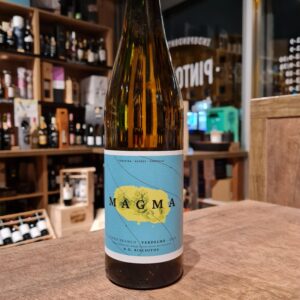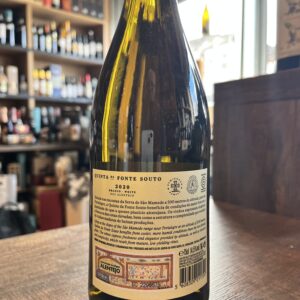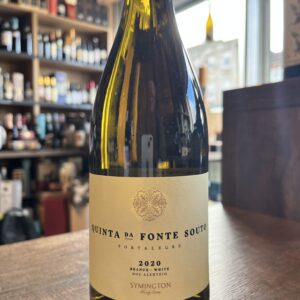Ricardo Alves and Frederico Machado visited Bemposta for the first time together in 2017. They were on the Portuguese back roads in the Parque Natural das Arribas do Douro, with its wealth of ancient, indigenous and largely forgotten grapevines chaotically perched on the extreme slopes on the Douro river gorge, when they came upon the perfect location for their life project, the place to which they would commit their youth. They set out to rediscover and revitalize an ancient wine culture whose local home winegrowers have just barely kept the faint bloodline of their vinous history from extinction. Trás-os-Montes is a large, but not too well known, wine region of north eastern Portugal (Translation: behind the Mountains), is where the Arribas Wine Company are based and both are very passionate have been making some very interesting wines. Saroto Tinto is made from a small, old parcel of vines comprised of old-fashioned red and white Douro varieties. The resultant wine is full of wild forest fruit, lots of berries with a kick of natural sourness. Plenty of fresh acidity adds juiciness and balances the rustic, grippy tannins, making for quite a light red. Earthy minerality adds extra complexity and the finish is long and moreish. Its bottled unfined and unfiltered so may have natural sediment in the bottle.
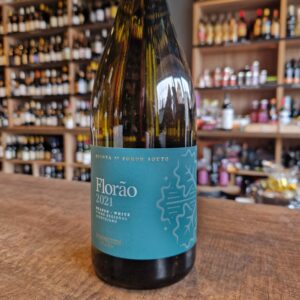 Quinta da Fonte Souto is in the Portalegre subregion of the Alto Alentejo in southern Portugal. Close to the São Mamede range (1,025 metres), the property benefits from the area’s altitude with its cooler microclimate in sharp contrast to the Alentejo region’s typically hot and dry conditions. Yields are low due to the schist and granite soils, which are less fertile than those found in the flat and rolling terrain which characterizes the majority of the Alentejo.
Quinta da Fonte Souto is in the Portalegre subregion of the Alto Alentejo in southern Portugal. Close to the São Mamede range (1,025 metres), the property benefits from the area’s altitude with its cooler microclimate in sharp contrast to the Alentejo region’s typically hot and dry conditions. Yields are low due to the schist and granite soils, which are less fertile than those found in the flat and rolling terrain which characterizes the majority of the Alentejo.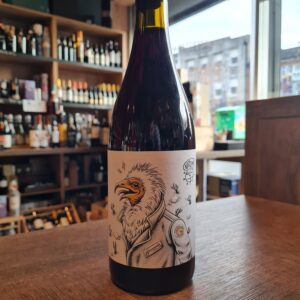 Ricardo Alves and Frederico Machado visited Bemposta for the first time together in 2017. They were on the Portuguese back roads in the Parque Natural das Arribas do Douro, with its wealth of ancient, indigenous and largely forgotten grapevines chaotically perched on the extreme slopes on the Douro river gorge, when they came upon the perfect location for their life project, the place to which they would commit their youth. They set out to rediscover and revitalize an ancient wine culture whose local home winegrowers have just barely kept the faint bloodline of their vinous history from extinction. Trás-os-Montes is a large, but not too well known, wine region of north eastern Portugal (Translation: behind the Mountains), is where the Arribas Wine Company are based and both are very passionate have been making some very interesting wines. Saroto Tinto is made from a small, old parcel of vines comprised of old-fashioned red and white Douro varieties. The resultant wine is full of wild forest fruit, lots of berries with a kick of natural sourness. Plenty of fresh acidity adds juiciness and balances the rustic, grippy tannins, making for quite a light red. Earthy minerality adds extra complexity and the finish is long and moreish. Its bottled unfined and unfiltered so may have natural sediment in the bottle.
Ricardo Alves and Frederico Machado visited Bemposta for the first time together in 2017. They were on the Portuguese back roads in the Parque Natural das Arribas do Douro, with its wealth of ancient, indigenous and largely forgotten grapevines chaotically perched on the extreme slopes on the Douro river gorge, when they came upon the perfect location for their life project, the place to which they would commit their youth. They set out to rediscover and revitalize an ancient wine culture whose local home winegrowers have just barely kept the faint bloodline of their vinous history from extinction. Trás-os-Montes is a large, but not too well known, wine region of north eastern Portugal (Translation: behind the Mountains), is where the Arribas Wine Company are based and both are very passionate have been making some very interesting wines. Saroto Tinto is made from a small, old parcel of vines comprised of old-fashioned red and white Douro varieties. The resultant wine is full of wild forest fruit, lots of berries with a kick of natural sourness. Plenty of fresh acidity adds juiciness and balances the rustic, grippy tannins, making for quite a light red. Earthy minerality adds extra complexity and the finish is long and moreish. Its bottled unfined and unfiltered so may have natural sediment in the bottle.

